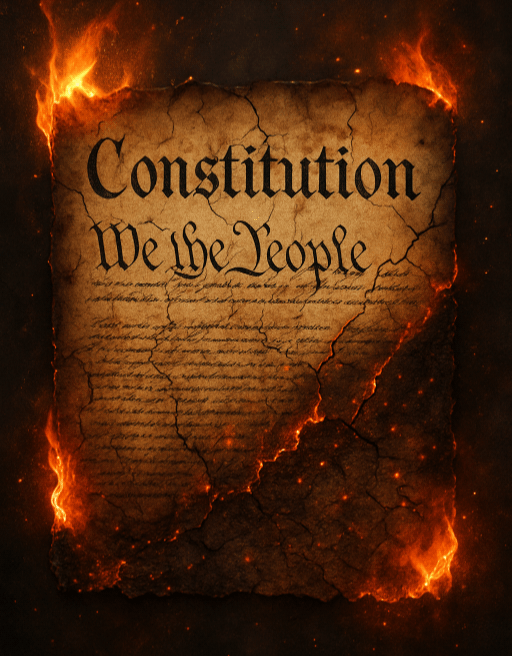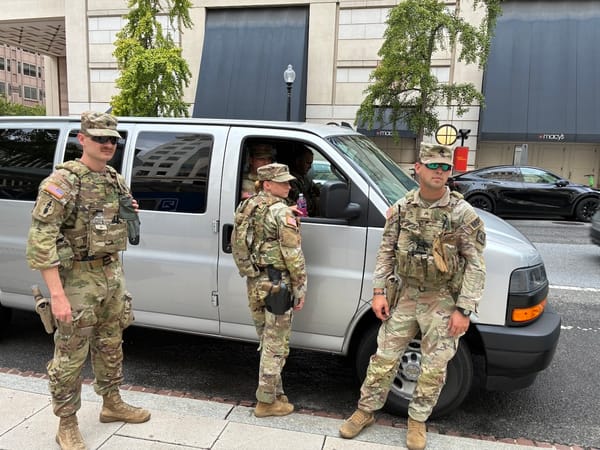Intelligence Politicization Scandal’s New Wrinkle
In my recent piece on allegations of the doctoring of intelligence estimates on ISIS produced by the United States Central Command…
In my recent piece on allegations of the doctoring of intelligence estimates on ISIS produced by the United States Central Command (CENTCOM), I said that
With respect to the CENTCOM analysts’ allegations of politicization, the Intelligence Community Whistleblowing and Source Protection Office would be a far more appropriate entity to conduct this inquiry than the DOD IG, now under a major legal cloud. Moreover, as CENTCOM is hardly the only Intelligence Community element producing estimates on ISIS, a thorough investigation would encompass all IC components that have produced analytical products or estimates on the group.
There is now evidence that the kind of inquiry I previously suggested is needed immediately.
Today, the Guardian reports that Director of National Intelligence James Clapper
is said to talk nearly every day with the head of US Central Command’s intelligence wing, Army Brigadier General Steven Grove — “which is highly, highly unusual”, according to a former intelligence official.
Grove is said to be implicated in a Pentagon inquiry into manipulated war intelligence.
Whether Clapper is trying to manipulate the estimates, or get to the bottom of who is doing so, is something the Guardian’s sources appear to be split on
Knowledgeable former officials are doubtful that Clapper directly intends to manipulate intelligence. And they do not say that the director of national intelligence — who apologized to his Senate overseers in 2013 for publicly misleading Congress on the scope of domestic surveillance — ordered Grove or anyone else to change the command’s assessment of the war.
But one former intelligence official said Clapper “has to be careful of the Cheney effect, going over to the CIA and how does that affect people” — a reference to pressure felt by CIA analysts before the 2003 Iraq invasion to portray Saddam Hussein as posing a more dire threat than he actually did, following then Vice-President Dick Cheney’s direct interaction with far more junior analysts and officials.
“He can be manipulative,” a former senior defense official said of Clapper. For Clapper as a senior US intelligence officer with access to assessments across the 16 US intelligence agencies to query Grove, the Central Command intelligence chief, the ex-official said, “something’s wrong”.
Earlier this week, the Daily Beast reported that the revolt among CENTCOM analysts over the shading of their estimates on ISIS was much larger than previously reported
More than 50 intelligence analysts working out of the U.S. military’s Central Command have formally complained that their reports on ISIS and al Qaeda’s branch in Syria were being inappropriately altered by senior officials, The Daily Beast has learned.
The complaints spurred the Pentagon’s inspector general to open an investigation into the alleged manipulation of intelligence. The fact that so many people complained suggests there are deep-rooted, systemic problems in how the U.S. military command charged with the war against the self-proclaimed Islamic State assesses intelligence.
“The cancer was within the senior level of the intelligence command,” one defense official said.
Clapper is not the first head of the U.S. Intelligence Community to be publicly accused of pressuring analysts to alter intelligence estimates that run counter to a given president’s official line.
Robert Gates nomination in 1991 to be Director of Central Intelligence led to multiple former CIA analysts to come out publicly against his nomination. Several testified against him during the Senate Select Committee on Intelligence (SSCI) hearings on his nomination. Former Office of Soviet Analysis (SOVA) analyst Jennifer Glaudemans subsequently recounted on Democracy Now
JENNIFER GLAUDEMANS: My problem with that was, I’d love vigorous debate. I had some tremendous mentors in the agency who challenged me all of the time, who made me a better analyst, but it was always about evidence. What happened in the Third World Activities Division was analytical judgments were put out as community view in estimates or as CIA view, for which there was no evidence. The Iran estimate in 1985 is just a classic example of that, and one I was personally involved with. There was no evidence to support the key judgment about the Soviets in that Iranian estimate. There was a ton of evidence that contradicted that. So it’s not a question of a young junior analyst not getting her view taken, it was a question of evidence versus no evidence.
AMY GOODMAN: And Bob Gates’s role in that exactly?
JENNIFER GLAUDEMANS: He was — as the CIA was the drafter of that segment of the estimate, he was our boss as deputy director of intelligence, but he was also simultaneously the chairman of the National Intelligence Committee, which put out the estimate. Now, one of the interesting facts, when you go back and look at these allegations, is that the CIA never took a footnote to an estimate, could not dissent to an estimate, as long as Mr. Gates was also the chairman of the NIC. Now, not since he held that position has anyone ever yet again held a conflict of interest position of holding those two jobs. That alone, I think, speaks of what happened.
Other SOVA veterans like Mel Goodman rendered even harsher judgments against Gates. As John Prados noted in his book Safe for Democracy: The Secret Wars of the CIA
Charges that Robert Gates had politicized intelligence took center stage when confirmation hearings opened in September [1991]. At first an extended examination of the nominee was not planned. Marvin C. Ott, deputy director of the SSCI staff at the time, recalls that the predisposition to let Gates sail through created a staff presumption that there was nothing to look into. Committee staff and members were flummoxed by the appearance of a succession of analysts who gave chapter and verse on many Gates interventions in intelligence analysis. Reports on Afghanistan and Nicaragua were among those cited. Evidence emerged that current employees, reluctant to criticize openly, also saw Gates as an interventionist. Far from pro forma nomination hearings, those on Gates morphed into a major CIA inquiry.
The nominee presented a preemptive defense, attempting to disarm critics with examples of how he had simply tried to push analysts to back up their assertions, picturing some alleged interventions as his effort to tease out better reporting. Then a number of former analysts went before the committee to dispute that rendering, most notably Mel Goodman, who had been a colleague for years; Jennifer L. Glaudemans, a former Soviet analyst; and Harold P. Ford, one of the CIA’s grand old men. Alan Fiers appeared as part of the committee’s fairly extensive coverage of Iran-Contra, but his testimony did Gates no harm. Others supported the nomination. Gates himself returned for “something fairly dramatic,” a round of follow-up testimony refuting critics. The hearings became the most extensive examination of U.S. intelligence since the Church and Pike investigations. Work at Langley ground to a halt as CIA officers watched every minute on television, much like Americans riveted by the 0. J. Simpson murder trial.
The intelligence committee wrestled with its quandary. President Bush intervened, invoking party discipline to ensure that members backed the nominee. Ott believes Gates appealed to the White House for this measure. Committee chairman David Boren staged his own covert operation, acting impartially in the camera’s eye while laboring in secret to build support for the nominee. Boren agreed to one of the most extensive committee reports on a nomination ever, in which his committee attempted to reconcile Gates’s testimony with the charges against him. In Ott’s view, this episode became the first time in a decade where partisanship reigned on the SSCI. Finally the committee approved Bush’s appointee. Gates was confirmed early in November.
The current allegations against Clapper are so troubling because they sound hauntingly like the intelligence politicization sagas of the past, whether from the Bush era a decade ago, the Casey-Gates era at the CIA in the 1980s or the Johnson era during the Vietnam War. One thing that should have been learned from each of those episodes is that allowing intelligence estimates to be subverted has consequences — in the case of Vietnam in 1967–68 and the 2003 U.S. invasion of Iraq, the consequences included thousands of dead American soldiers and Marines.
While House Intelligence Committee Chairman Devin Nunes has shown great interest in the veracity of the intelligence estimates on Iran’s nuclear capability, neither he or his Senate Intelligence Committee counterparts have shown (at least publicly) the same concern about the Clapper/CENTCOM intelligence drama. On the day we mark the 14th anniversary of our greatest intelligence failure since Pearl Harbor, now would be a good time for the Intelligence Community’s Congressional overseers to take an interest in this latest — and extremely consequential — intelligence controversy.





